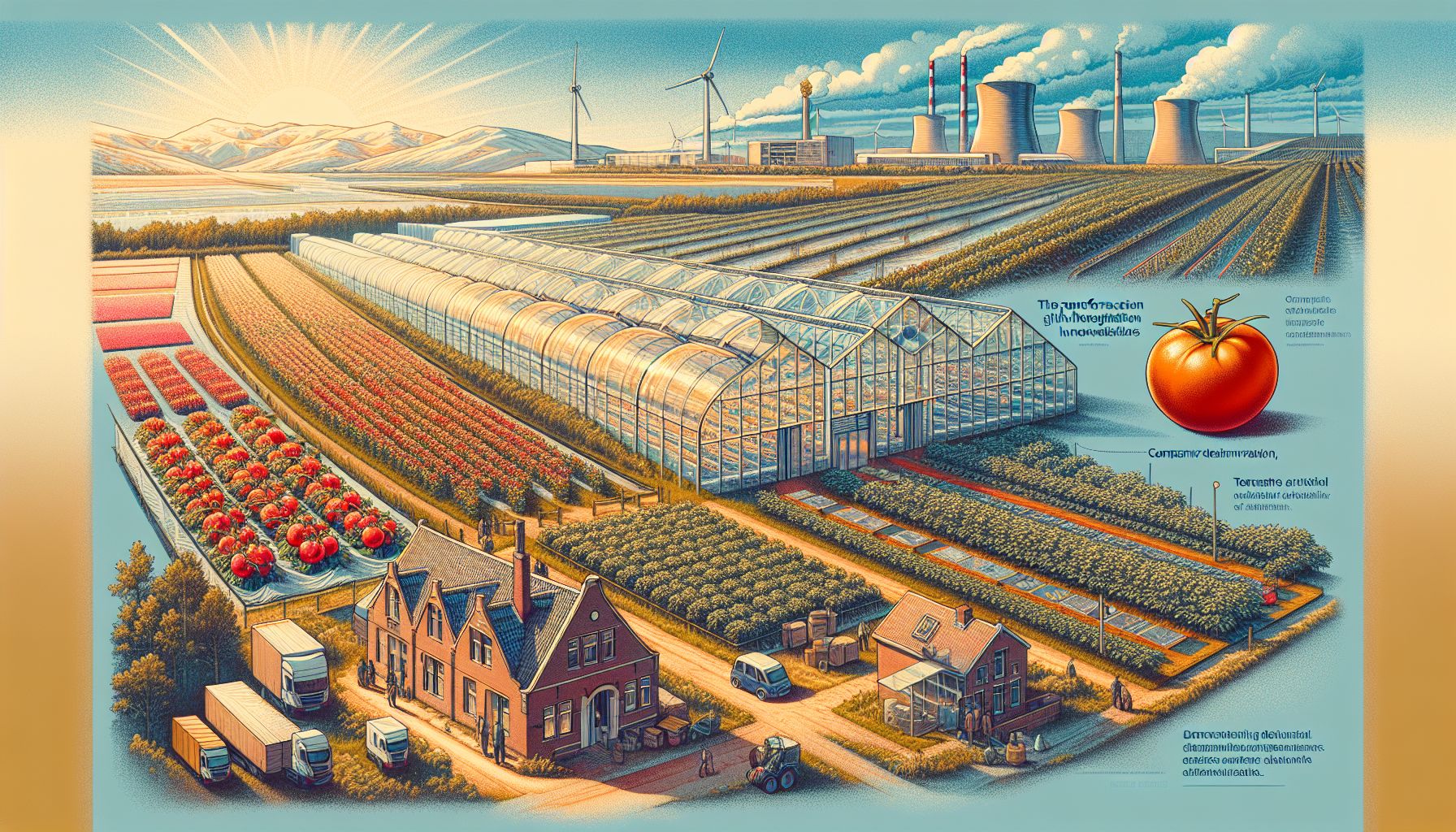Dutch Greenhouses Lead Agricultural Revolution

Netherlands, Tuesday, 15 October 2024.
The Netherlands, the world’s second-largest agricultural exporter, is pioneering high-tech greenhouse innovations. These advanced structures are transforming crop cultivation, enhancing efficiency, and promoting sustainability in agriculture. Companies like Syngenta Tomato Vision are at the forefront, developing cutting-edge, non-GMO varieties.
Innovative Technologies Transforming Agriculture
The Netherlands’ prowess in agricultural innovation is exemplified by companies such as Syngenta Tomato Vision. This research facility focuses on creating high-tech, non-GMO tomato varieties, contributing significantly to the country’s seed business. With over 180 tomato varieties and more than 20 global teams dedicated to tomato variety selection, Syngenta is a key player in the agricultural sector’s technological revolution[1].
A Cluster of Innovation
Dutch Greenhouse Delta, headquartered in Naaldwijk, Holland, serves as a hub for over 25 greenhouse companies, including giants like Van den Ende Rozen and Koppert Cress. This cluster promotes the Dutch horticultural ecosystem globally, advocating for sustainable, local food production. The organization’s integrated Fork2Farm approach aims to enhance the entire value chain, from science and enterprise to education and government, ensuring efficiency and sustainability[2].
Global Impact and Sustainability Initiatives
The impact of Dutch greenhouse technology extends beyond local borders. Van der Hoeven Horticultural Projects, for instance, designs high-tech greenhouses in water-scarce regions like the UAE and Saudi Arabia. These projects utilize water-saving solutions, such as closed greenhouse systems, to enhance local food production while addressing global food and water security challenges[3].
Collaborations and Future Prospects
The Dutch horticultural sector is also fostering international collaborations to tackle global challenges like climate change and energy transition. Minister Reinette Klever’s recent visit to Certhon highlighted the potential of Dutch innovations to make a substantial impact worldwide. With government support through strategic policies and international trade networks, the Netherlands is poised to maintain its leadership in horticulture technology[4].

